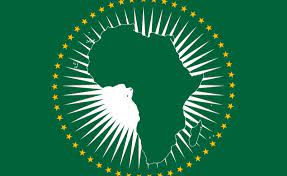The African Union recently vowed to fund its own activities and reject funding from its traditional partners that comes with strings attached.
But is this lofty ambition achievable given the organisation’s heavy dependence on outside donors?
The main funders of the 54-member continental organisation are European Union countries such as Germany, Sweden, Spain, the Netherlands and the United States.
A large chunk of the money for AU’s operational budget comes from the European Union and the World Bank which set conditions for funding.
While opening the 39th Ordinary Session of the Executive Council of the Chairperson of the AU Commission in Adds Ababa, Ethiopia, Moussa Faki Mahamat, said the continental organisation would be more critical of the conditions set by its donors.
He said the surest alternative to their funding is for the AU to dig within its own pocket to bankroll policies and programs to strengthen the fight against Africa’s challenges.
He said the preparation of the budget of the African Union for the financial year 2022, was marked by a methodology of work that leaves little room for imprecision and uncertainties as to its funding, and that it is focused on the implementation of its flagship Agenda2063 projects.
The austerity budget “is marked, among other things, by the firm rationalization of expenditure items, compliance with the budgetary ceiling, the financing of supplementary budgets primarily on the basis of internal budgetary savings, the convening of a single annual session dedicated to the consideration of requests for supplementary budgets, the rigorous supervision of recourse to the services of consultants, the priority given to virtual meetings, the identification and the elimination of duplication at the level of the departments, and the budget balance which harmonises predictable revenues and expenses”, the chairperson said.
He also reported that the adopted new departmental structure of the AU Commission is being implemented as part of ongoing institutional reforms, and that it is taking place in strict compliance with the new recruitment standards and quotas.
On partnerships, the AUC head urged the meeting to clarify the nature and objectives of interactions with various partners, with a view to building “the Africa we Want”.
Observers say there are ‘roadblocks” to the AU achieving self-funding since it has no sustainable, equitable or accountable means of funding and thus is heavily dependent on foreign donors.
At least 40 percent of its member countries do not pay their annual dues toward the running cost of the institution nor does the commission have a strong oversight and accountability mechanism to monitor its resources and ensure that they are spent prudently.
The 0.2 percent levy on eligible imports to enable the AU to fund itself in the long term is yet to be implemented.
When the idea was first introduced by Donald Kaberuka, a former head of the African Development Bank it was hailed as historic.
After his stint with the AfDB ended, Dr. Kaberuka was tasked with devising a scheme which would mean the AU was fully funded by its members.
Thus the 0,2 percent levy was born and was meant to account for 75 percent of the AU programmes.
In celebratory mood, Rwanda’s then minister of Finance Claver Gatete made optimistic projections about generating $1.2 billion from the levy in 2016, an amount which nearly doubles AUC budget for that year.
Five years on, the AU Commission chairperson still takes issue with this self-funding drive given the tendency of member countries to spend elsewhere than on the organisation’s running cost.
The fact that 70 percent of the AU’s budget is determined by donors outside the continent shows the gulf between what was meant to be and what still obtains.
MG/as/APA


